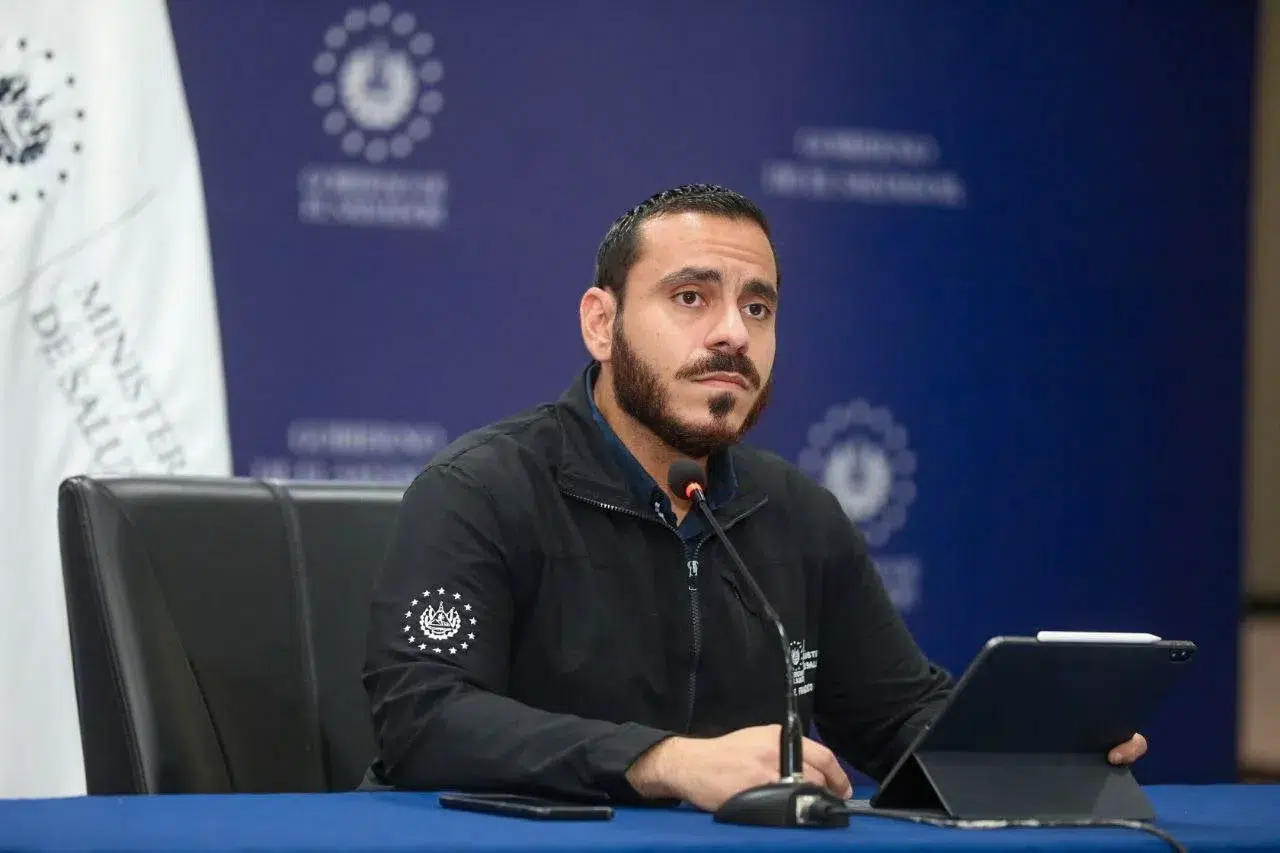The head of the Ministry of Health (MINSAL), Francisco Alabi, confirmed on Tuesday that the State portfolio removed medications not suitable for human consumption, as revealed by an investigation from LA PRENSA GRÁFICA published on Monday.
“The medication was removed, and we are waiting for the companies to provide us with the different counterparts,” said Alabi in the Frente a Frente interview on the Salvadoran Telecorporation. The official added that, in cases like these, administrative processes are initiated against suppliers.
This newspaper had access to 22 memorandums from MINSAL, issued in the last year, ordering the removal of drugs declared not suitable for human consumption by the institution’s Quality Control Laboratory. Among the medications were antibiotics, contraceptives, and pediatric medicines.
Alabi maintained that there was “no impact on health,” although the ministry’s memorandums show that the anomalous medications were distributed between 2021 and 2023 to the population, including minors.
Every year it can happen that you enter a medication, which complied with all the mechanisms or quality parameters, but suddenly, while being stored, for one reason or another, or due to inadequate quality of the medication, it begins to generate some type of sediment, in the case of solutions. This is not the proper practice. Then, within the parameter, the analysis being done throughout the network captures that medication, sends it for analysis to the Quality Control Laboratory, verifies that it does not meet the conditions, and removes it and initiates an administrative process against the supplier” — Francisco Alabi, Minister of Health
Additionally, Health employees told this newspaper that the orders to remove the medications came late and, in most cases, they had already been distributed to the patients.
In the interview with TCS, Alabi stated that it was not a contamination of the drugs. “I want to clarify: within the ministry, there has not been a medication, and I want to be very specific here, with contamination that could put health at risk. It is not the same for a medication that, regardless of the formulation that was made, is generating some type of physical-chemical changes in its appearance, as for you to have a medication with salt contaminated with E.coli (a type of bacteria that can cause infections and diarrhea). That is a big difference,” he said.
He added that situations like these happen “in any health system” and have even occurred with the “most important health organizations.” He assured that “El Salvador has the fewest situations like this when compared internationally.”
Days before the publication of the investigation, this newspaper sought, through various means, the stance of the Minister of Health to ask, among other details, how many patients had received these medications and whether users of the public system would be notified about these health warnings, but he did not respond. The official also did not clarify this information in the interview with TCS.
Ministerio de Salud confirma que retiró medicamentos no aptos para consumo humano
El titular del Ministerio de Salud (MINSAL), Francisco Alabi, confirmó este martes que la cartera de Estado retiró medicamentos no aptos para el consumo humano, como lo reveló una investigación de LA PRENSA GRÁFICA publicada el lunes.
“El medicamento se retiró y estamos a la espera de que las empresas nos entreguen las diferentes contrapartes”, dijo Alabi en la entrevista Frente a Frente, de la Telecorporación Salvadoreña. El funcionario agregó que, en casos como estos, se inician procesos administrativos contra los suministrantes.
Este periódico tuvo acceso a 22 memorandos del MINSAL, emitidos en el último año, que ordenan el retiro de fármacos declarados como no aptos para el consumo humano por el Laboratorio de Control de Calidad de la institución. Entre los medicamentos había antibióticos, anticonceptivos y medicinas pediátricas.
Alabi sostuvo que no hubo “ninguna afectación en la salud”, a pesar de que los memorandos del ministerio muestran que los medicamentos anómalos se entregaron entre 2021 y 2023 a la población, incluyendo menores de edad.
Todos los años puede suceder que usted ingresa un medicamento, el cual cumplía con todos los mecanismos o parámetrosde calidad, pero de repente, al estar almacenado, por una u otra razón, o por una calidad inadecuada del medicamento, entonces comienza a generar algún tipo, en el caso de soluciones, algún tipo de sedimento. Esto no es el deber ser. Entonces, dentro del parámetro, el análisis que se está haciendo en toda la red, captan ese medicamento, se manda a análisis al Laboratorio de Control de Calidad, se verifica que no tiene las condiciones y se retira, y se inicia un proceso administrativo contra el suministrante” — Francisco Alabi, Ministro de Salud
Además, empleados de Salud dijeron a este periódico que las órdenes de retirar los medicamentos llegaron tarde y, en la mayoría de casos, ya se habían distribuido a los pacientes.
En la entrevista con TCS, Alabi afirmó que no se trató de una contaminación de los fármacos. “Quiero aclararlo: dentro del ministerio no ha habido un medicamento, y en esto quiero ser muy específico, que tenga una contaminación que pueda poner en riesgo la salud. No es lo mismo un medicamento que, independientemente por la formulación que se hizo, esté generando algún tipo de cambios físico-químicos en su apariencia, a que usted tenga un medicamento que tenga la sal contaminada con E.coli (un tipo de bacteria que puede causar infecciones y diarreas). Esa es una gran diferencia”, dijo.
Agregó que situaciones como estas suceden “en cualquier sistema de salud” e incluso ha ocurrido con los “las organizaciones más importantes de salud”. Aseguró que “El Salvador es de los que menos situaciones de esto tiene cuando hace la comparativa a nivel internacional”.
Días antes de la publicación de la investigación, este periódico buscó por varias vías la postura del ministro de Salud para consultarle, entre otros detalles, cuántos pacientes habían recibido estos medicamentos y si se notificaría a los usuarios del sistema público sobre estas advertencias sanitarias, pero no respondió. El funcionario tampoco aclaró esta información en la entrevista con TCS.

